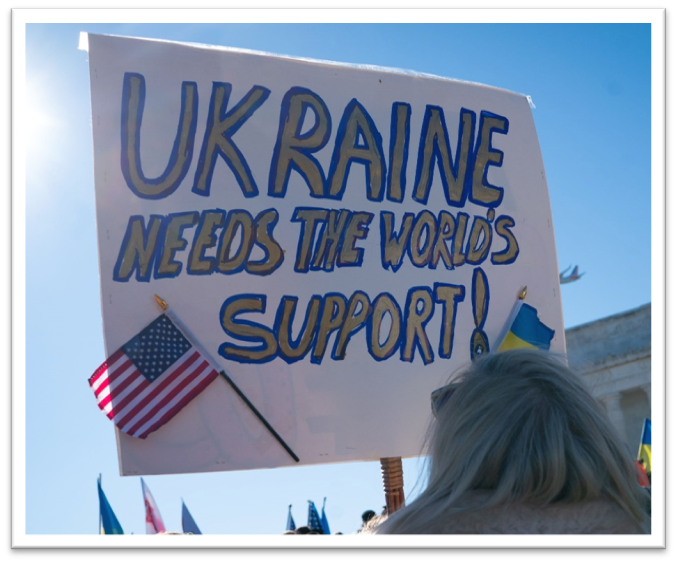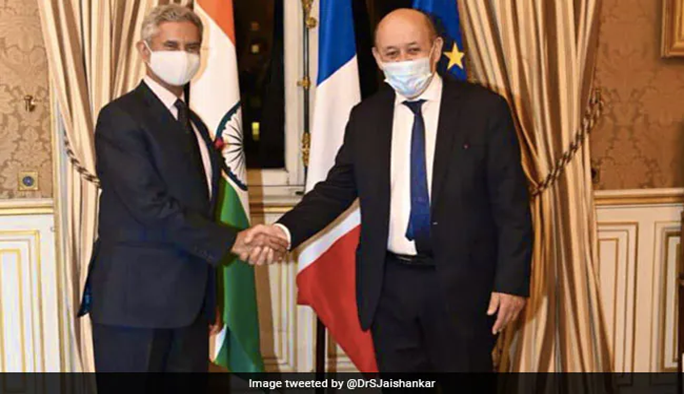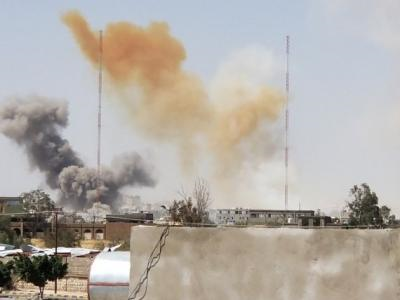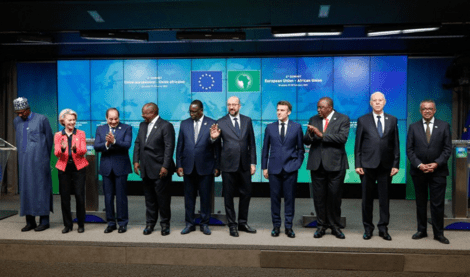On the Brink of Third World War?

Source: The Washington Post
On Monday, Russian President Vladimir Putin recognised the two breakaway Eastern territories of Ukraine created after the separatist war in Eastern Ukraine in 2014, namely, Luhansk and Donetsk People’s Republics, which escalated the situation.
To the East, North, and South of Ukraine, Russia developed large-scale troop build-up challenging the diplomatic solutions to the detrimental state of affairs. Straight after the recognition, Russia confirmed the deployment of ‘peacekeepers’ in the region, identified as ‘Russian Troops’ by the EU foreign policy chief Josep Borrell and Poland’s defence minister. Similarly, the world leaders condemned the action, putting harsh sanctions on Moscow, limiting its capital and financial markets access. European Union has also pursued block listing and freezing assets of members of Russia’s lower house of the Parliament. Additionally, Germany had ordered to halt the certification of Nord Stream 2 passing through Russia’s coast. But unfortunately, Russian officials have been uncooperative towards the sanctions.
Furthermore, on 24 February 2022, Putin announced a ‘military operation’ in Ukraine. Explosions took place in the Ukrainian capital Kyiv and several other cities. Russian Convoy conveyed “it’s a de-escalatory move and not aimed at occupation.” However, Ukrainian Foreign Minister Dmytro Kuleba accused Russia of launching a ‘full-scale invasion.’ Meanwhile, it is claimed that 137 Ukrainians and 50 Russian occupiers have been killed.
On the other hand, Ukrainian military airbases and defence systems were neutralised by Russia. Russia also seized control of the Chernobyl nuclear plant. Ukraine has cut off diplomatic ties with Russia. Meanwhile, in a phone call with President Putin, Indian Prime Minister Narendra Modi appealed for “an immediate cessation of violence.”
By Vani Sharma - Batch 20-22
India-France diplomatic meet for close cooperation

Minister of External Affairs of India, Dr S. Jaishankar, on 20 February 2022, visited France to have bilateral talks with Mr Jean-Yves Le Drian, Minister for Europe and Foreign Affairs France. Both the ministers exchanged views on strengthening cooperation in defence and security, trade and investment, health, education, research and innovation, and they appreciated the concurrence during the COVID-19 crisis. With the climate change challenges looming large all over the globe, India and France agreed to enhance cooperation in energy and climate change. As a part of this goal, India-France adopted “A Roadmap on the Blue Economy and Ocean Governance.”
The Indo-Pacific region was also the agenda point discussed by both the ministers to strengthen cooperation in the region. MEA India joined the EU Ministerial Forum on Cooperation in the Indo-Pacific region, and in this context, Dr Jaishankar and Mr Drian agreed to a joint Indo-French call for the “Indo-Pacific Parks Partnership.” India and France also agreed to start negotiations on the India-EU free trade and investment agreement. Both the ministers also exchanged concerns over the Ukraine crisis and emphasised the need for effective multilateralism and rule-based order and cooperation in this area.
By Hitendra Boradey - Batch 20-22
Stronger ties between India and UAE
Recently, India and UAE signed a major trade agreement. The Comprehensive Economic Partnership Agreement (CEPA) covers many sectors aimed to increase the bilateral trade from the current $43.3 billion to the expected $115 billion in the next five years.
A new energy was put into the bilateral relations when Prime Minister Narendra Modi visited Abu Dhabi in 2015 and the visit of UAE Crown Prince to New Delhi in 2017 as Republic Day’s chief guest—upgrading the relations to “Comprehensive Strategic Partnership”.
In the energy sector, both nations have agreed to work on India’s energy requirement and collaborate on finding new energy sources. Developing together reliable supply chains of vaccines in the healthcare sector, India has welcomed UAE investment in India’s health infrastructure. As both the nations are bearing the brunt of terrorism, both agreed to increase maritime cooperation, and commitment to fight extremism and terrorism in all forms.
As a part of “Post Pandemic Recovery”, this agreement will give India a good chance to build strategic partnerships with Gulf countries. It will also give Indian industries access to the West Asian market for gems, jewellery, textile and leather goods. Likewise, UAE will get access to the Indian market in petrochemical, metals and dates.
By Shantam Gupta - Batch 21-23
Nine Yemeni soldiers dead by a landmine explosion in Yemen

Source: The Shillong Times (https://theshillongtimes.com/2021/08/01/3-killed-in-yemen-landmine-blast/)
Nine Yemeni soldiers have been killed by the landmine explosion in Yemen’s northern province of Saada, one of the bastions of the Houthi rebels. An anti-vehicle landmine laid down by the rebel group had struck the pro-government forces. The explosion destroyed the vehicle. The rebel group has laid countless landmines near it, surrounding it with large fields of landmines. The rebel group attempted to block the pro-government forces from entering their strongholds through landmines.
The reports by many humanitarian organisations have put that the country is considered the house of one of the extensive landmine battlefields since the Second World War. In a recent move, the U.S Secretary of State Antony Blinken expressed his concerns over the surge in civilian casualties in rebel-held Yemen on Thursday. In a recent talk with Hans Grundberg, the UN Special Envoy for Yemen, the current Secretary of State called for de-escalation by all the parties.
By Anirban Dutta - Batch 20-22
EU-AU Summit 2022: An enhanced commitment to multilateralism

Two Unions and their One Joint Vision
Source: African Business
The African Union and European Union leaders first premeditated to gather to settle their partnership priorities in early 2020. Sixteen months later, the two blocs finally made it happen in Brussels on 17-18 February 2022.
After two days of deliberations, the summit between the African Union and the European Union concluded on a positive note. The leaders expressed the need for renewed partnerships, and some significant investments under the “Global Gateway Investment Package” were announced. Supported by European initiatives, the said Package is expected to boost large-scale sustainable investments, with due attention to the needs and priorities of the African countries. It included energy, transport, digital infrastructure, connected transport networks and human development, and peaceful cooperation in terms of security and migration issues.
While former EU-Africa summits have resulted in many feckless strategic declarations and plans, the 6th of its kind, this summit’s joint vision for 2030 is based on mutual respect and equality. Rightly so, for the African Union, this indicates a fundamental shift in the association between Europe and Africa. As for the European Union, Beijing has become Africa’s largest infrastructure investor and bilateral lender in recent decades; Brussels is desperate to recover lost ground.
By Rithika Thammaiah C - Batch 20-22